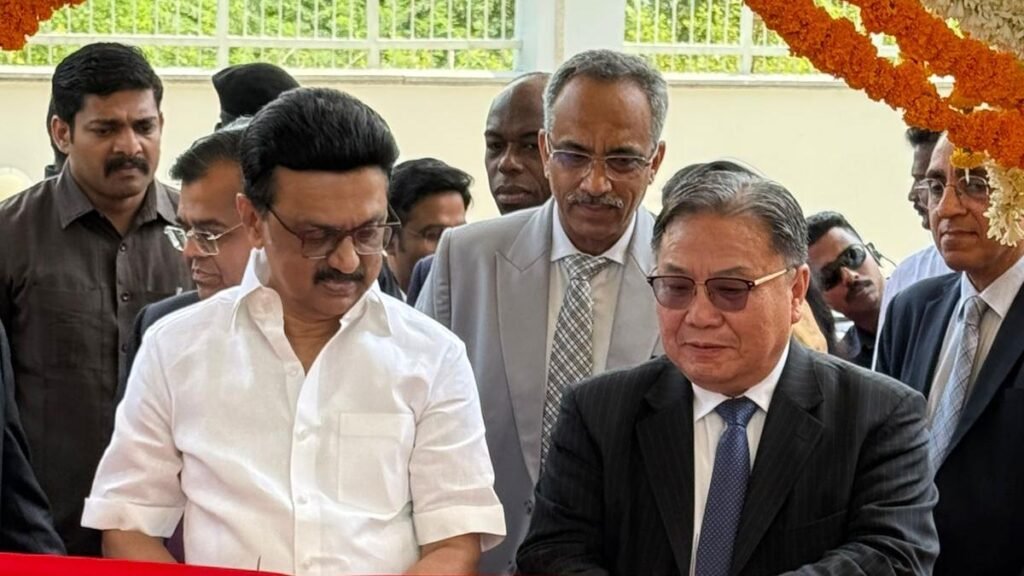
The World Bank Group (WBG) has recently made a major announcement about the modernisation and expansion of its global knowledge and service centre in Chennai, Tamil Nadu. This announcement, largely considered to be an affirmation of the WBG’s commitment to India and Tamil Nadu in particular, is in line with the changing role of Chennai as it becomes more active in global development services and back office operations for multilateral institutions. This article will delve into the implications, context, and critique of the World Bank’s announcement, while trying to ground the conversation in fact and the comparative frameworks.
Context
The World Bank Group’s Chennai office was established in 2001, largely for back-office work, to assist the Washington, D.C.-based headquarters. The office has expanded since then to become one of the largest WBG global hubs and houses over 1,200 personnel, offering IT functions, accounting, human resources, and other business services.
The new modernization initiative will entail refurbishment of infrastructure, upgrading of office spaces, and application of green technologies. According to an official release, the shift is stated to enhance efficiency, rapidly access global talent, and expand the Chennai center to support extra capacity.
The clearance was welcomed by Tamil Nadu Chief Minister M.K. Stalin, who saw the action as an endorsement of the increasing human resource capacity of Tamil Nadu in meeting the needs of the international service economy. The deployment is also according to India’s drive to be a global knowledge and innovation economy.
The choices to modernise the Chennai centre raise some real implications concerning the strategic intent of the World Bank. The first question is whether the modernisation is purely operational, or does this indicate a change in the geographical de-concentration of WBG’s core functions? Though there is very little mention of redistributing senior decision-making roles formally to Chennai, the new and expanded role suggests an intention to increasingly depend on a non-headquarters centre for critical global functions.
Also, this move should be examined in the context of the global evolution of digitalization and the trend towards remote and virtual operations. Post-COVID-19 many multilateral institutions were examining low-cost ways to continue operations while improving resilience. While cost-effective, Chennai is also a highly capable location compared to Western urban centres.
Implication
The upgrade of the Chennai centre has both local and international implications:
In terms of Tamil Nadu, it enhances the global brand of the state and may lead to further investment by international agencies and MNCs. It also signals security and growth in high-skill jobs.
For India: The timing of the announcement coincides with India’s efforts to increase its representation and influence in global governance institutions. Developing a closer relationship with the WBG strengthens India’s legitimacy as a development partner.
For the WBG: To expand its operations into Chennai allows the WBG to cut costs, access a skilled workforce, and improve operational efficiencies. It could serve as the operational template for future similar expansions in other developing economies.
Several stakeholders are directly impacted by this development:
WBG Employees: The modernisation may improve working conditions and prospects for people employed locally.
Local Government: It enhances Tamil Nadu’s reputation as a progressive, development-oriented state.
Indian Diplomacy: It further entrenches India’s role in international institutions, and could, if needed, provide some token leverage in political discussions.
There does not appear to be any clear opposition to the expansion, although it remains to be seen how this situation will be managed alongside competing requests from other states for operational centres with WBG.
The World Bank Group’s action to enhance and expand its global centre in Chennai is indicative of developments in the global development pathways. While operational, it is emblematic of India being an important player on the global institutional stage. The centre enables and enhances local economic opportunity, increases global organisational efficiency, and is part of a wider regional empowerment trend in global governance.
Ongoing consideration will be important for understanding whether this indicates a larger shift in the manner in which multilateral organisations decentralise and deliver global services. For now, it firmly places Chennai and Tamil Nadu on the global development map.
Keep reading questiqa.com




